Post operative bleeding is when a patient suffers excessive bleeding after surgery. The patient’s life could be in danger if the bleeding is not stopped, and there is also a higher risk of heart problems and other complications.
If you are in danger of post-operative bleeding, the surgical team should have a plan in place to deal with any issues that may arise.
If you or a loved one suffers from bleeding after surgery and it goes unchecked, you may have a medical negligence compensation claim.
The Medical Negligence Teams No Win No Fee solicitors will help make your surgical negligence case as stress free as possible while helping to secure the compensation you deserve.
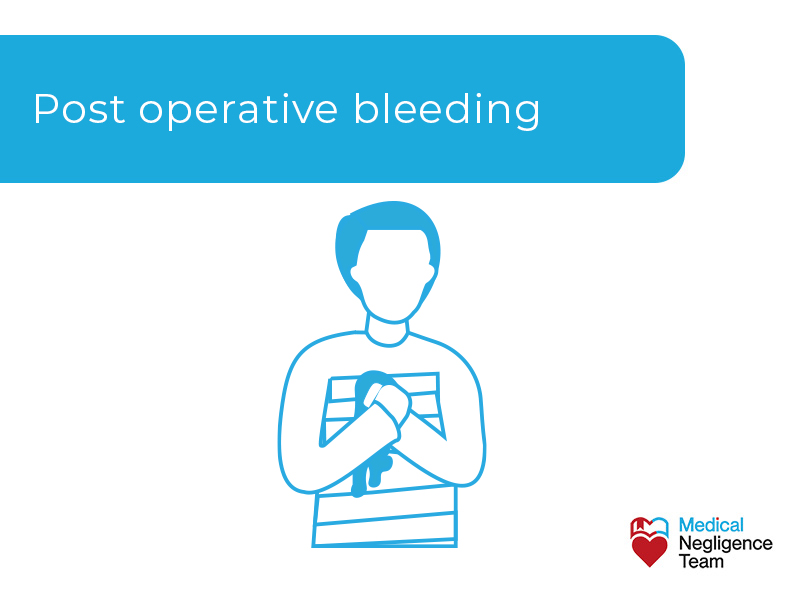
Table of Content
Post-Operative Haemorrhage
A post-operative haemorrhage is heavy bleeding following surgery. It is usually internal bleeding, which may go unnoticed if the team is negligent in their post-operative duties.
Patients at a higher risk of a post-operative haemorrhage need particular care. If you are on blood thinners, such as Warfarin, the risks of bleeding during and after surgery are high. The surgical team should have a plan in place to deal with your condition.
A postoperative haemorrhage happens when a surgical team is negligent with your treatment after surgery. Instead of giving you the correct medical attention, the team is negligent in your post-operative care and misses the signs of bleeding.
Medical negligence is medical care below that any other medical professional acting at an acceptable level would provide. With post operative negligence, you could suffer heavy bleeding, heart issues, go into shock, and if left untreated, a patient could die.
Your No Win No Fee medical negligence solicitor can look at your case and see if you have a valid post-operative haemorrhage negligence claim for compensation.
Common post operative haemorrhage claims
Common post operative haemorrhage claims range from damage due to the excessive bleeding to the stress of suffering complications post surgery. Patients can go through unnecessary suffering due to medical negligence, and you may be able to claim for compensation.
Common post operative haemorrhage claims are:
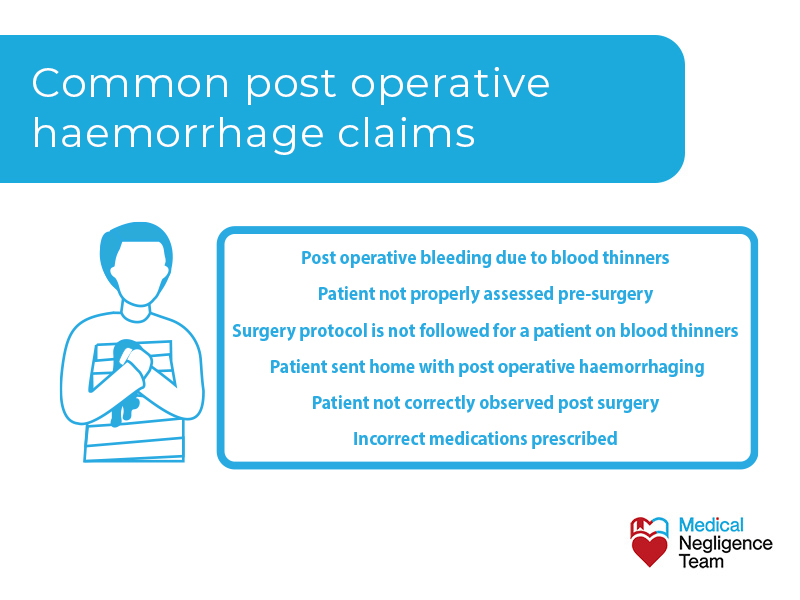
Post operative bleeding due to blood thinners
Post operative bleeding due to blood thinners is a real possibility for some patients who are on Warfarin and other such drugs. Patients on blood thinning medication should have it noted in their records, and the surgical team should take precautions.
If the medical team does not take precautions with patients on Warfarin or it is not recorded in their notes, and they suffer a bleed, then a patient may have a post operative bleeding claim for compensation.
Patient not properly assessed pre surgery
When a patient is not properly assessed pre surgery, the surgical team may later miss the obvious danger signs of post operative haemorrhaging.
Patients should be assessed for the possibility of blood clots and other conditions that could make surgery dangerous and increase the chances of bleeding.
The patient’s full medication record should be noted, and precautions taken with blood thinners.
If the team makes an error in your pre-surgery history, you may have a claim for negligence.
Surgery protocol is not followed for a patient on blood thinners
If surgery protocol is not followed for a patient on blood thinners, the chances are greatly increased of bleeding during and after surgery.
A patient’s risks must be identified before surgery. If the risks are high, there may be a decision to postpone surgery or to administer certain drugs before and after surgery to avoid bleeding.
Patients on blood thinners may be taken off them for surgery and put back on their prescription following the operation.
For a patient’s risks to be identified but then ignored is a clear case of surgical negligence.
Patient sent home with post operative haemorrhaging
A patient sent home with post operative haemorrhaging is in grave danger and could need immediate medical attention. The surgical team has missed the vital signs of internal bleeding and discharges the patient, possibly risking their life.
Secondary bleeding can happen in patients up to ten days post surgery. If the patient is at risk of secondary bleeding, the team should take appropriate action before they leave the hospital.
You may have a medical negligence claim for compensation if you suffer secondary bleeding due to substandard care at the hospital.
Patient not properly monitored post surgery
A patient not properly monitored post surgery may be at risk of developing bleeding without it being noticed. Every patient should be observed following surgery, and any abnormalities noted and acted upon immediately.
Patients on Warfarin and other blood thinners should be under particular care, and any changes in blood pressure, temperature and bruising noted.
A patient can lose a lot of blood in a short space of time post surgery, and you may have a claim for medical negligence if you are not properly monitored and suffer bleeding.
Incorrect medications prescribed
Incorrect medications prescribed for post surgery care may cause trouble with patients on Warfarin and blood thinners. If the medications interact and increase bleeding problems, it could be trouble for the patient.
Doctors should put patients back on their medications only when the time is right. To be placed on Warfarin too soon and to suffer post operative bleeding could cause many problems.
A No Win No Fee medical negligence solicitor can take your claim for post operative haemorrhaging negligence to seek compensation for you.
Compensation for post operative haemorrhage claims
You can seek compensation for post operative haemorrhage negligence claims in amounts from the low £10,000s to over £10 million in some cases.
The compensation varies depending on several factors, and post operative bleeding negligence claims sometimes see very high awards, such as when a patient passes away or suffers a lifetime of unnecessary suffering and chronic pain.
Compensation amounts in post operative haemorrhage negligence claims can be:
All amounts are approximate and are only a guide to what is possible in post operative haemorrhage negligence claims. Figures can be high in some claims as you or a loved one could need long-term care and may face medical bills for life. You may be able to claim for these care expenses and the medical costs in the future.
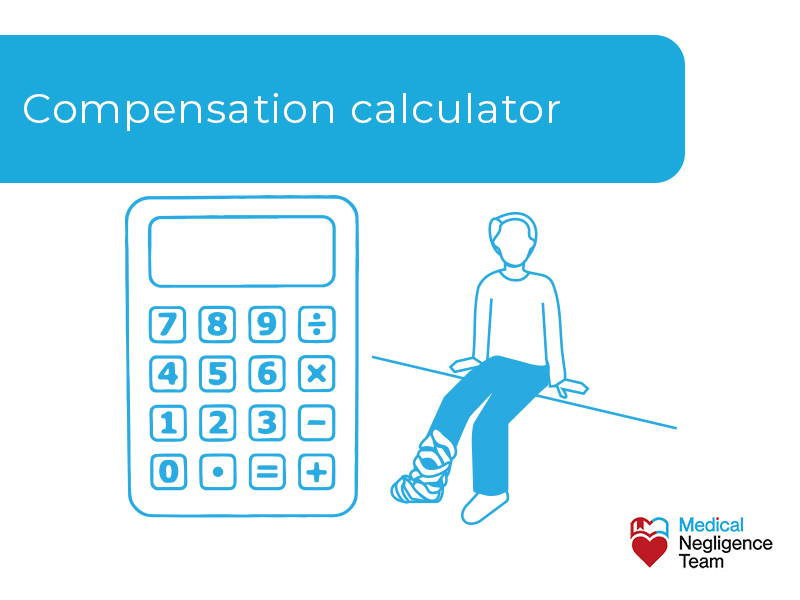
As in all medical negligence claims, each case is dealt with on merit and how much the patient suffers due to post operative haemorrhage complications.
A No Win No Fee medical negligence solicitor will be the one to advise you on a post operative haemorrhage negligence claim. They will know from experience what your case may be worth and how to make a successful claim.
Your No Win No Fee medical negligence solicitor will handle your post operative haemorrhage negligence claim for compensation and for all damages incurred.
Our Process
Our team members have a higher career win rate with a 75% success rate on NHS letters of claim, compared to an industry average of 54.5%.
Enquiry
The first step is to get in touch and tell us what went wrong. It’s free and easy. Call our 24-hour helpline: 0800 246 1122 or request a callback here.
Medical Evaluation
Once you have spoken with our team we’ll let you know how we can help. Typically the next step is to obtain your medical records for us to review.
Legal Letter
Once all your medical records have been received they will be reviewed by a medically & legally qualified member of our team. If there is evidence of medical negligence we will send a letter of claim to the negligent party outlining your medical negligence claim.
Who is eligible for compensation?
The patient who suffers from complications due to post operative haemorrhage negligence may be eligible for compensation. They are the ones who have suffered, and the clear medical negligence could lead to their death or another condition, such as heart trouble getting a lot worse.
If a patient passes away due to post operative haemorrhage negligence, the ones left behind may have a claim for medical negligence.
Loved ones in a medical negligence case are known as ‘dependents’ and can be:
When you are a victim of post operative haemorrhage negligence or have lost a loved one through post operative haemorrhage negligence, you may have a claim for compensation.
What can you claim for when you sue for post operative haemorrhage negligence?
You can claim compensation for any damages that occurred when you sue for post operative haemorrhage negligence.
There are two types of compensation damages due when suing for any type of medical negligence: General damages and Special damages.
You deserve compensation to cover all losses, including loss of life, medical costs, and long-term care needs.
When you or a loved one suffers from the effects of post operative haemorrhage negligence, you make a claim for post operative haemorrhage negligence compensation.
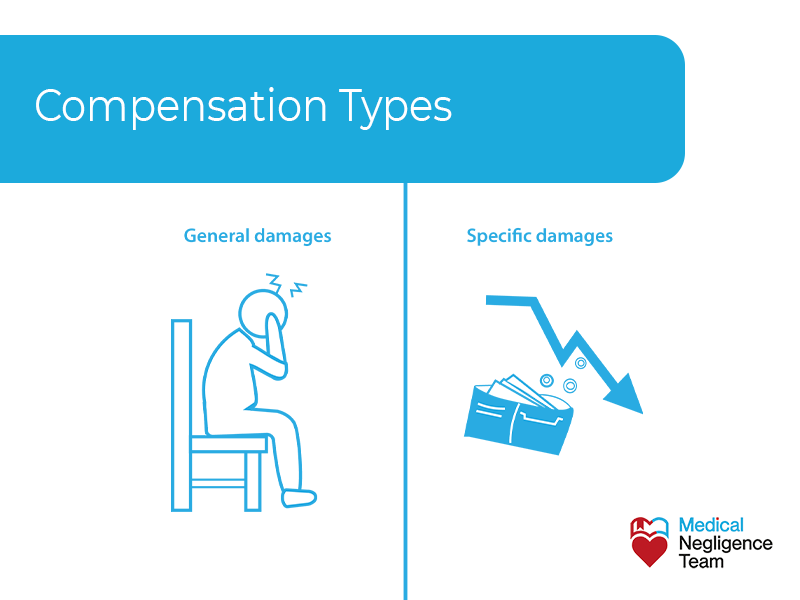
Who is responsible for post operative haemorrhaging negligence?
A medical professional is responsible for any post operative haemorrhaging negligence claims. When you bring a claim for post operative haemorrhaging negligence, you claim against the NHS Trust or private clinic that employed the medical professional responsible.
A medical professional responsible for the post operative haemorrhaging negligence could be:
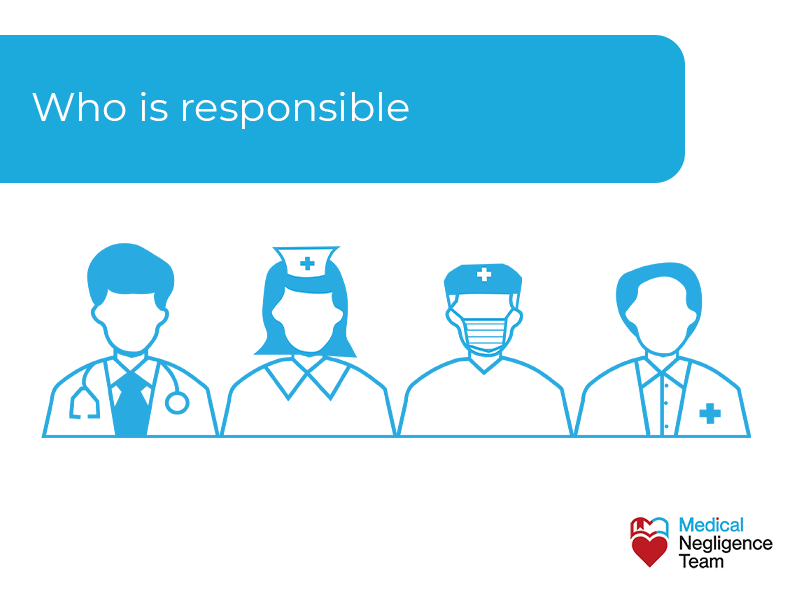
Every medical professional owes you a duty of care when dealing with your health problems. You may suffer post operative haemorrhaging negligence if they are negligent with that duty of care and do not provide you with a professional service before an operation.
Medical negligence is treatment below an acceptable standard by a medical professional. Instead of putting the care needed into your post surgery care, the team misses the signs of post surgery bleeding, which is clear medical negligence.
You may need to undergo years of treatment to correct the errors of post operative haemorrhaging negligence. By behaving less-than-professionally, the doctor risks your health, and the effects could be with you for life.
You can claim compensation for the post operative haemorrhaging negligence and to get help with getting your life back on track again.
How can post operative haemorrhage happen?
A post operative haemorrhage can happen when the team responsible for your surgery is negligent in your treatment and misses the signs of bleeding.
Before surgery, the surgical team should meet with you and explain everything to you and take a detailed record of your medical history. A pre-operation protocol should be put in place where you are taken off Warfarin and other drugs so as not to have complications with post operative bleeding. A post operative haemorrhage can happen if you are still on the drugs, which causes excessive bleeding.
You can also experience bleeding due to surgical errors and should be monitored for any of the standard warning signs in the days after surgery.
Medical negligence is when you receive medical treatment below an acceptable standard, and it is not any different with surgical negligence.
A No Win No Fee can take your case for the possible surgical negligence that leads to post operative bleeding.
Surgical Negligence
Surgical negligence is when you experience surgical care below a standard that any other surgeon would provide in similar circumstances. It is surgical care below acceptable levels that causes you injury and affects your life today and into the future.
Surgical negligence can be responsible for post operative bleeding complications when the surgeon does not adhere to your medical records and ensures you are off Warfarin and other such medications.
Surgical negligence may also be responsible for post operative bleeding if they do take due care of you when in recovery. If they miss vital signs of bleeding, like elevated temperature and low blood pressure, you may be at risk of post operative haemorrhaging.
Your No Win No Fee medical negligence solicitor can help you through the steps in making a post operative haemorrhaging claim.
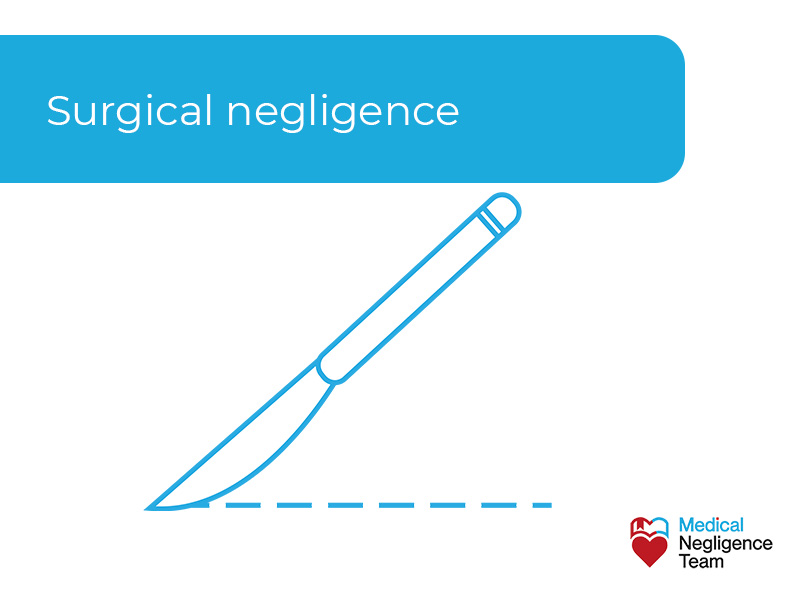
What are the steps involved in making a post operative haemorrhaging negligence claim?
The steps involved in making a post operative haemorrhaging negligence claim go from seeking medical advice to issuing court proceedings.
The steps are a part of any successful compensation case, and settlement can happen at any stage in the process.
Your medical negligence solicitor will do the rest when you follow the steps correctly and gather all the facts and figures.
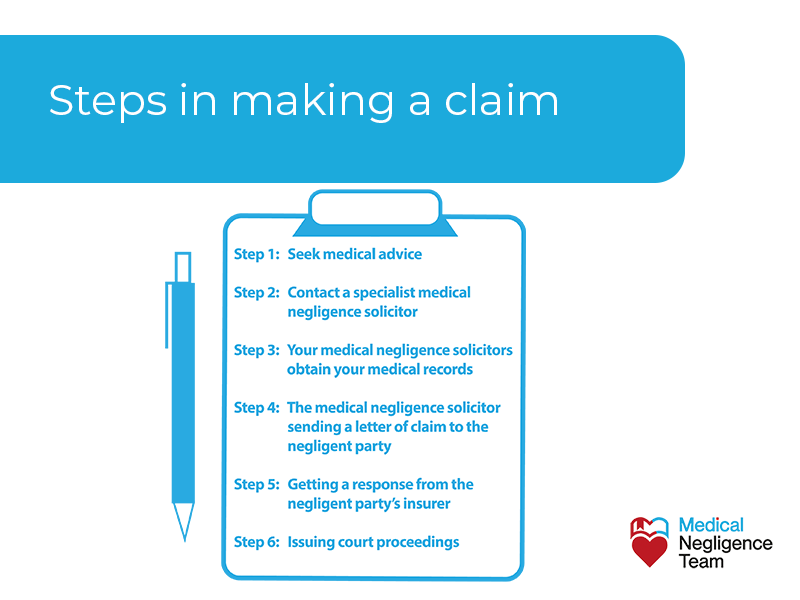
Our Process
Our team members have a higher career win rate with a 75% success rate on NHS letters of claim, compared to an industry average of 54.5%.
Enquiry
The first step is to get in touch and tell us what went wrong. It’s free and easy. Call our 24-hour helpline: 0800 246 1122 or request a callback here.
Medical Evaluation
Once you have spoken with our team we’ll let you know how we can help. Typically the next step is to obtain your medical records for us to review.
Legal Letter
Once all your medical records have been received they will be reviewed by a medically & legally qualified member of our team. If there is evidence of medical negligence we will send a letter of claim to the negligent party outlining your medical negligence claim.
How long do I have to make a claim for post operative haemorrhaging negligence?
You have three years to make a claim for post operative haemorrhaging negligence. All medical negligence claims are subject to limitation periods.
For example, in England and Wales, medical negligence claims must generally be brought and court proceedings issued within three years of the injury or three years of knowledge of the facts giving rise to the post operative haemorrhaging negligence claim.
If someone has passed away, it is the date of death if the limitation period has not expired at the date of death.
Children not under a disability typically have until they reach 21 to start a post operative haemorrhaging negligence claim or court proceedings.
Persons with a disability, who lack capacity, are not subject to any limitation period.
Can I make a medical negligence claim on behalf of a loved one?
Yes, you can make a medical negligence claim on behalf of a loved one. Under UK law, if an injured party cannot represent themselves, then a loved one can take the case on their behalf.
Post operative haemorrhaging negligence is a perfect example of claiming on behalf of a loved one. The negligence could take a loved one’s life or leave them unable to make a claim.
Your loved one depends wholly on you and the family for care and to fight for their rights. By making a claim on their behalf for post operative haemorrhaging negligence, you are fighting for the compensation they deserve.
A No Win No Fee medical negligence solicitor will work with you to win the compensation claim for post operative haemorrhaging negligence.
Using a No Win No Fee solicitor
Using a No Win No Fee solicitor is the only way to a successful post operative haemorrhaging negligence compensation claim. Your No Win No Fee medical negligence solicitor will not charge you for a claim you do not win.
Always have a fee agreement in place before engaging a medical negligence solicitor. If they start talking of a ‘win fee’ or a ‘success fee,’ you should walk away. The negligent party insurers should pay all fees.
The medical negligence solicitor should also operate a 100% Compensation Guarantee scheme. When you win the case, all the money awarded should go to you, not the solicitor.
You are the one who suffered the post operative haemorrhaging negligence, and you deserve the compensation to get your life back to normal.
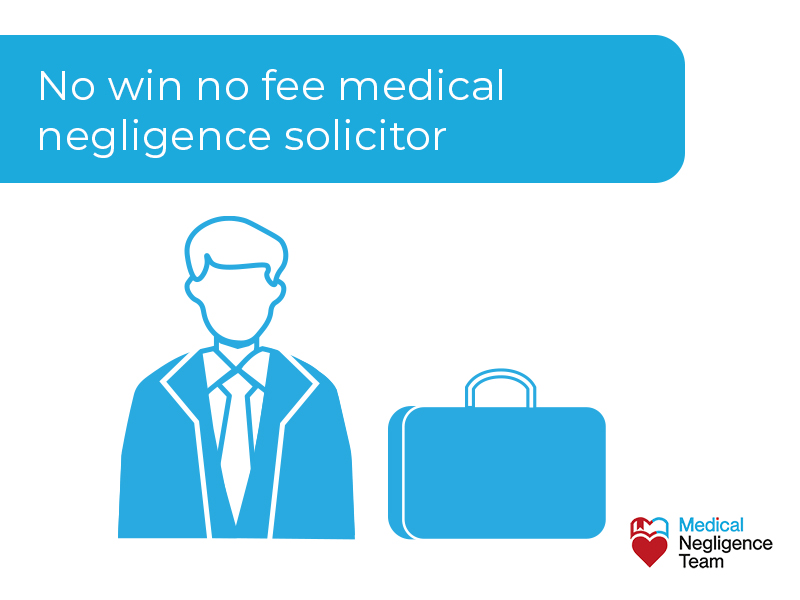
Can I make a medical negligence claim against the NHS?
Yes, you can make a medical negligence claim against the NHS. Suing the NHS for negligence is not unusual. People sue the NHS for compensation for medical negligence and receive the money they deserve for the negligent treatment.
There are between 8,000 and 10,000 successful medical negligence claims against the NHS each year—amounts in compensation claims awarded against the NHS range from £1000 to over £10 million.
The amount of compensation you receive covers minor injuries such as scarring to serious life-threatening negligence, which leaves you with long-term care needs.
We trust in and use the NHS daily and do not expect negligence. It happens, though, and the NHS has a dedicated team to handle medical negligence compensation claims, called NHS resolution.
NHS Resolution has a responsibility to treat patients who seek compensation fairly. Patients pay for the NHS through their taxes, and for that they deserve respect and the best medical treatment.
Contact The Medical Negligence Team
Contact the Medical Negligence Team today to discuss your post operative haemorrhaging negligence claim for compensation. We have both the legal and medical experts to guide you along the steps to a successful medical negligence claim for compensation.
At the Medical Negligence Team, we fight every compensation claim on a No Win No Fee basis. You will not be out of pocket for an unsuccessful claim.
We have a very high success rate and a reputation for a speedy and successful resolution to all medical negligence cases.
Our 100% Compensation Guarantee puts all the money you win into your pocket. You or your loved one suffered post operative haemorrhaging negligence and deserve every penny of the compensation claim.
Contact us at the Medical Negligence Team for all your medical negligence needs.

